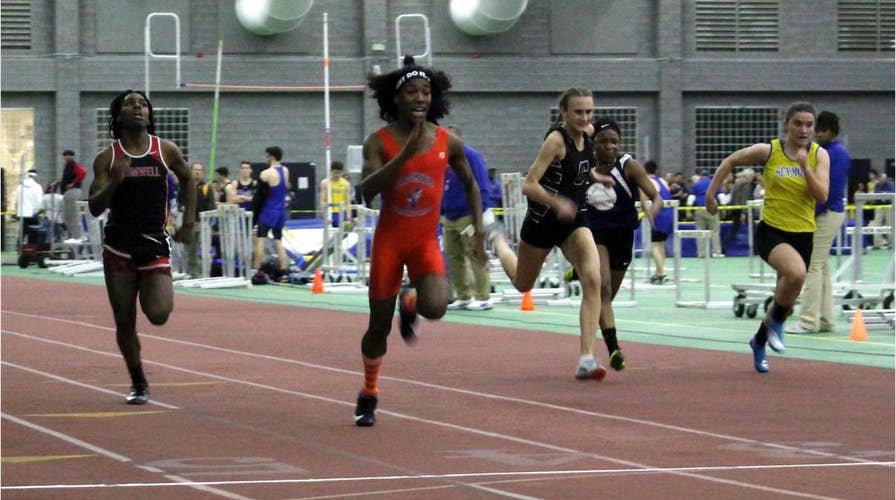Woman calls out sister for fake Instagram 'hiking' photos, goes viral
Should transgender athletes be allowed to participate in the sport gender which they identify?
The federal Office for Civil Rights has launched an investigation into Connecticut's policy that allows transgender high school athletes to compete as the gender with which they identify.
The investigation was announced in a letter Wednesday from the arm of the U.S. Department of Education. It follows a complaint in June by the families of three girls, who say they were discriminated against by having to compete in track events against two athletes who were identified as male at birth and who they say have "male hormone levels and musculature."
The complaint was submitted on the girls' behalf by lawyers for the conservative non-profit organization Alliance Defending Freedom, which contends the transgender girls have an unfair physical advantage and that the state policy violates Title IX, the federal law designed to ensure equal opportunities for women and girls in education, including athletics.
They argue that allowing the transgender athletes to compete has resulted in denying their clients and others the opportunity to qualify for events such as the New England championships, where they would have been seen by college coaches.
"Girls should never be simply spectators in their own sport; they deserve to compete on a fair playing field," said Selina Soule, a Glastonbury High School sprinter, who has consistently finished behind the two transgender athletes in state championships. "I hope that this important step will help return fairness to the sport I love."
The Connecticut Association of Schools-Connecticut Interscholastic Athletic Conference has said its policy follows a state anti-discrimination law that says students must be treated in school by the gender with which they identify.
The organization said in June it would cooperate fully with any investigation.
The transgender athletes in question, rising seniors Andraya Yearwood, of Cromwell High School, and Terry Miller, of Bloomfield High School, have both defended their participation in girls' events.
Yearwood told The Associated Press in February that there are many differences among athletes that may give one a physical advantage over another, and she does not think she has an unfair advantage.
"One high jumper could be taller and have longer legs than another, but the other could have perfect form, and then do better," she said. "One sprinter could have parents who spend so much money on personal training for their child, which in turn, would cause that child to run faster."
Her mother said Yearwood would have no comment on Thursday.
Miller, who has won numerous state championships in both indoor and outdoor track, did not respond to a request for comment. But she told the Hartford Courant at the time the complaint was filed that it is "painful that my victories have to be attacked and my hard work ignored."
Connecticut is one of 17 states that allow transgender high school athletes to compete without restrictions, according to Transathlete.com, which tracks state policies in high school sports across the country.
Seven states have restrictions that make it difficult for transgender athletes to compete while in school, like requiring athletes to compete under the gender on their birth certificate or allowing them to participate only after going through sex-reassignment procedures or hormone therapies.
